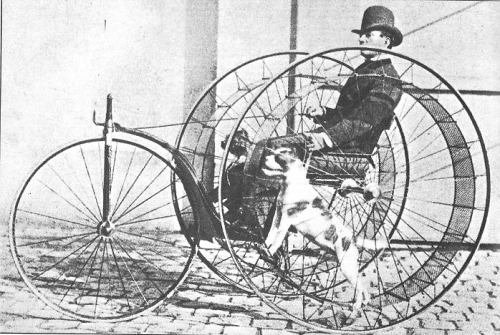
A Paris inventor patented this “cynophere,” or dog-powered velocipede, in 1875.
Twelve years later, a Cleveland designer offered this “motor for street-cars.” That’s progress.


A Paris inventor patented this “cynophere,” or dog-powered velocipede, in 1875.
Twelve years later, a Cleveland designer offered this “motor for street-cars.” That’s progress.

“The difference between a conviction and a prejudice is that you can explain a conviction without getting angry.” — Anonymous

A third case is one of somnocyclism (cycling in sleep). The patient, asleep, sometimes in cycling costume, and sometimes in an undershirt or less, got up, mounted his wheel, and rode about town and in the country. He generally awoke from a fall. On one occasion it was at the foot of a hill, his head on the edge of a pond, and his wheel about thirty feet distant. Another night he found himself suspended by his shirt on a pear tree in his father’s garden. It is not known whether he had descended thither from the roof or was trying to ascend. At other times he would go to his office and work. Once, having stuck over a balance in the afternoon, he found next morning that he had completed it, correcting an error previously not observed. There is no subsequent recollection of what has transpired. He has been observed in hospital to hold a conversation through an imaginary telephone, and again to sit atop a wardrobe with an umbrella up over him. Evidently this man’s disease included a sense of humour.
— G.R. Wilson, “Alcoholism and Allied Neuroses,” Journal of Mental Science, October 1899

Time and weather have sculpted a likeness of George Washington in Colorado’s Roxborough State Park. It even has “teeth.”
Right: A profile discovered near South Bethlehem, Pa., during the clearing of a mountainside in 1913. “Viewed in profile, the nose, upper lip, eye, and chin are as clearly defined as though cut by human agency,” wrote one observer. “Even the rock formation of the head has a surface curiously like in appearance to the wigs of colonial days.”
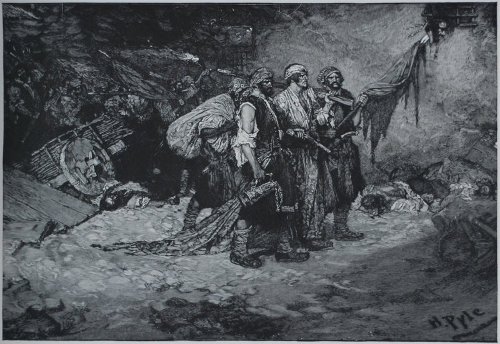
Three pirates find themselves on an island with a chest full of miscellaneous treasure. They have no weighing or measuring equipment. How can they divide the loot to the satisfaction of each?
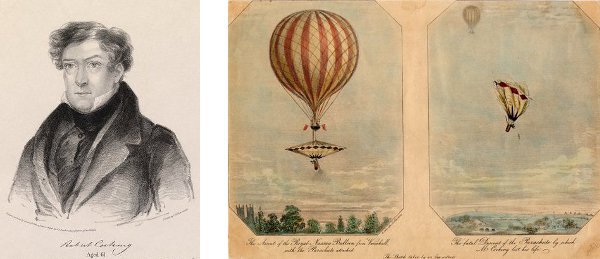
The following is an account of the post-mortem examination of the body of Mr. Robert Cocking, aged sixty-one, who fell with a suicidal machine called a parachute, from the cord of a balloon which ascended from Vauxhall Gardens, on the 24th of July, 1837. The height which the balloon had reached when the parachute commenced its descent, is stated to have been 5000 feet. The instrument of death was simply a canvas toy, constructed in ignorance, and used with the hardihood which might distinguish an unfortunate being who contemplated his own destruction by extraordinary and wonder-exciting means,– an end which, without the motive, was more effectually attained, by the crushing of the parachute in the air as it dropped:–
On the right side.–The second, third, fourth, and fifth ribs broken near their junction, with their cartilages. The second, fourth, fifth, and sixth broken also near their junction with the vertebrae. The second, fourth, fifth, and sixth ribs also broken at their greatest convexity.
On the left side.–The second, third, fourth, and sixth ribs broken near their cartilages, and also near their angles.
The clavicle on the right side fractured at the junction of the external with the middle third.
The second lumbar vertebra fractured through its body; the transverse processes of several of the lumbar vertebrae broken.
Comminuted fracture and separation of the bones of the pelvis at the sacro-iliac symphyses.
The ossa nasi fractured.
The right ankle dislocated inwards; the astragalus and os calcis fractured.
The viscera of the head, chest, and abdomen free from any morbid appearances.F.C. Finch, G. Macilwain, W. Maugham, T. Greenwood, W. Thompson, surgeons
— Lancet, Aug. 5, 1837
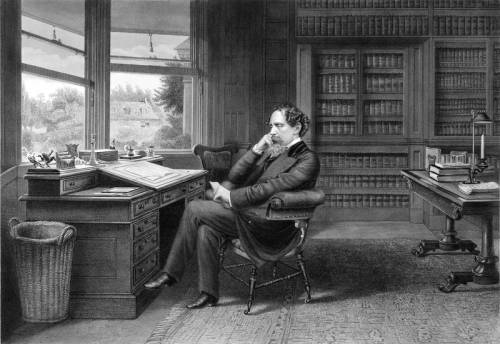
In June 1857, Hans Christian Andersen arrived at Charles Dickens’ new country home, Gads Hill Place. Andersen was an enormous admirer of Dickens — he had just dedicated a novel to him and was eager to enjoy a fortnight with his “friend and brother.”
Enjoy it he did. He gathered nosegays in the woods, cut figures from paper, invited Dickens’ son Charley to shave him, and explored London in cabs while hiding his valuables in his boots. He found that Dickens had an excellent supply of dinner whiskey and could offer a large tumbler of gin and sherry afterward. He watched Dickens perform in The Frozen Deep, burst into tears at the death scene, drank champagne with the cast, and returned to see it again a week later.
So delighted was he that in the end he stayed five weeks instead of the planned two. “None of your friends can be more closely attached to you than I,” he wrote on the way back to Denmark. “The visit to England, the stay with you, is a bright point in my life. … I understood every minute that you cared for me, that you were glad to see me, and were my friend.”
When Dickens returned to the house, he stole into Anderson’s bedroom and affixed a card to the dressing-table mirror. “Hans Christian Andersen slept in this room for five weeks,” it said, “which seemed to the family AGES.”
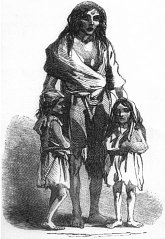
A senior relief official during the Irish potato famine was named Edward Pine Coffin.